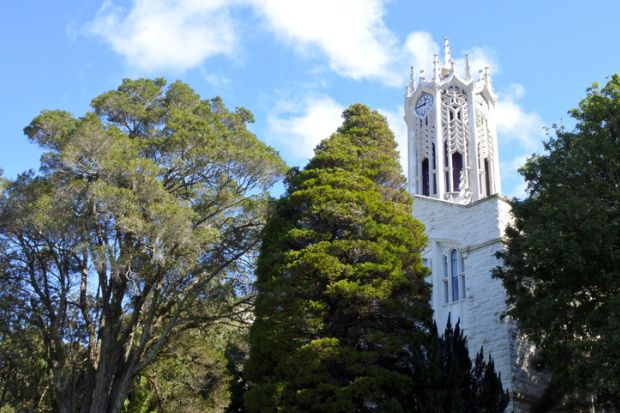New Zealand’s top-ranked university has refuted claims that it abandoned its star Covid commentator to an online mob, saying it took “all reasonably practicable steps” to protect her.
In what may be the first case of its type in the world, University of Auckland microbiologist Siouxsie Wiles is suing her employer over the pandemic-related harassment she suffered. The university has been accused of doing little to protect Dr Wiles and colleagues from escalating abuse and threats by opponents to lockdowns and vaccinations.
Barrister Philip Skelton, who is representing the university at the Employment Court of New Zealand, has submitted a six-page list of evidence to the contrary. It says the university monitored and logged the harassment, maintained regular police contact, appointed senior staff to support Dr Wiles, finalised guidelines for dealing with external harassment and commissioned an independent security audit and “individual risk assessment”.
The university blocked emails from one critic, issued a trespass notice against another, provided Dr Wiles with secure office and laboratory space, prevented her email account from being hacked and committed NZ$5,000 (£2,421) to upgrade her home security.
“The support and assistance that the university has provided to Associate Professor Wiles has been extensive,” Mr Skelton insists in a 23-page opening statement to the court. “Unfortunately, the university has no ability to control what outsiders post on social media [or] powers…to investigate the perpetrators of online abuse.
“The university’s…actions have been those that were open to a fair and reasonable employer to take in all the circumstances at the time. With hindsight, it is always possible to say that some of these steps could have happened sooner than they did, but there is always…a need to not rush implementation [in order] to get buy-in from staff.”
The statement acknowledges the “considerable online abuse” that Dr Wiles’ Covid commentary attracted, and that the harassment had a “gender-based element”. It says vice-chancellor Dawn Freshwater, “being a woman who has herself been targeted by online harassment, recognises this on a personal level”.
But it rejects claims that it tried to “silence” Dr Wiles when Professor Freshwater urged her to minimise public commentary pending the completion of an “external security review” commissioned at her request.
“The university had no reason, other than genuine concerns about [her] safety, to suggest that she temporarily pull back from public commentary on social media. The university did not silence her [or] attempt to silence her. She was never instructed that she could not continue to provide public commentary on Covid-19. She continued to do so,” Mr Skelton says.
The statement says the silencing claim lies “at the heart” of the case. “The freedom of academic staff to provide public commentary on areas of their expertise is in the public interest,” it says. “Academic freedom is part of the mechanism by which universities can discharge their statutory role as a ‘critic and conscience of society’.
“Both the university and Associate Professor Wiles acknowledge the importance of academic freedom. However…as an employer the university must balance competing rights and duties, such as academic freedom and [its] obligation to take all reasonably practicable steps to ensure the health and safety of its staff at work.”
The hearings are now expected to conclude on 27 November.
Register to continue
Why register?
- Registration is free and only takes a moment
- Once registered, you can read 3 articles a month
- Sign up for our newsletter
Subscribe
Or subscribe for unlimited access to:
- Unlimited access to news, views, insights & reviews
- Digital editions
- Digital access to THE’s university and college rankings analysis
Already registered or a current subscriber? Login










